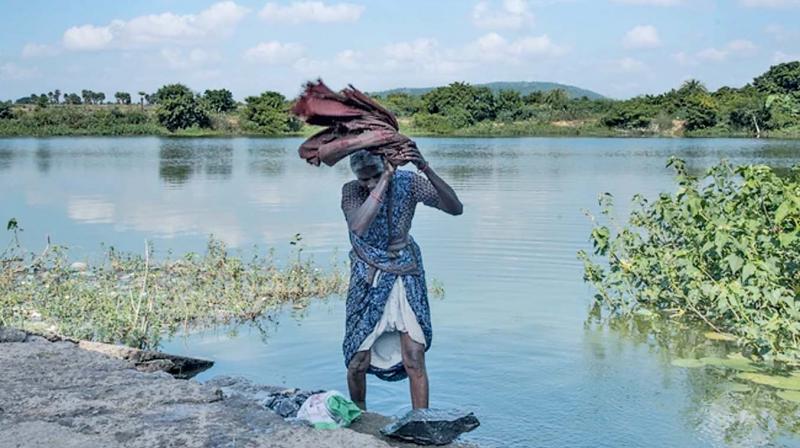Edgy artistes project the rural

Rural photography is not at all offbeat anymore! Many photographers cherish this form of photography as it takes them to a different time zone. DC speaks to them.
Photography has surely come a long way since the times of the father of modern photography, Alfred Stieglitz who was a pioneer in introducing photography as an art form in America. Today, when we have a handy device like mobile phones to capture moments, photography takes on a whole new form. Even as an art too, it has diversified into several categories including fashion, portrait, wedding, fine art, street, architectural, product, lifestyle and so on.
Amidst all that, there is one form that continues to uphold the rural India and channels attention to its economic, development and of course, the traditional realities of the places which are away from the hustle and bustle of metros.
Like the old adage which says, a picture is worth a thousand words, rural photography is indeed a photographer’s delight! All it takes is sheer passion and love for the art that eventually leaves an indelible impact on the frame and also into the hearts and minds as well.
Abhay Kumar, a city-based photographer who has travelled extensively to rural areas to bring out the essence, says, “I have travelled a lot to places in West Bengal, most of Tamil Nadu and Kerala, outskirts of Goa and many southern districts where people do not have even cell phones or TVs. What I have felt as a rural photographer is the connect these people have with their self. People are cut off from the world of social media but they enjoy life a lot more. They are a lot more real as people and nothing about them is fake. You will feel like you are in a different time zone altogether when you are with them. It just takes you to a different dimension altogether”.
When asked about what is his favourite location so far as a photographer, he reiterates, “As a photographer wherever I go, it’s a different experience altogether. While in West Bengal, I have seen remote areas where people still use wood fire for cooking. When you are in a south Indian village, you feel at home no matter where you are from. People are so welcoming and that remains constant, irrespective of language or cultural differences. The barriers are only in your head and how you look at things. You just need to be an open person to travel.”
Talking about what inspired him into taking up rural photography, Abhay says,
“I’ve always been in touch with things that are necessarily realistic. And there ought to be a desire or a lookout for things that you do not really see every day or people whom you won’t really meet on a day to day basis.”
Perhaps it is that inner fire which contributes to a great photograph.
You chance upon a tea shop in a village where you meet some amazing people, you sit with them, laugh and chat over a cup of tea and as time ticks by, you click some amazing pictures of the most innocent laughs or the hard-hitting realities of rural deprivations!
Narayana Swamy Subbaraman, who started out as a photojournalist in 2015, gradually found his true calling in rural documentation.
“When you go to rural areas, you find so many meaningful stories. These are unheard and voiceless stories that need to be told. And as a photographer I feel it is always the story that matters rather than the equipment.”
Narayana Swamy has a different stance when it comes to telling stories of the voiceless.
“It will matter more and be more impactful if those stories are told by people from those places themselves.”
Narayana has so far worked on architecture and heritage of Kanchipuram temples, life of the weavers and the traders community there, farmers protesting against the Salem expressway, sugarcane farmers at extracting juice from sugarcanes and a profile of Piyush Manush, an environmental acitivist and farmer, working towards ensuring a greener Salem.
As he deals with rural India in his documentation work, be it in the form of video or photo, Narayana draws immense inspiration from P. Sainath, Saumya Khandelwal, Harsha Vadlamani.
Talking about his best experience so far, Narayana reminisces, “When I was working in Salem, I came across so many farmers protesting. The warmth, and the compassion they hold in heart for us is unbelievable. And they don’t treat you as guests.”

